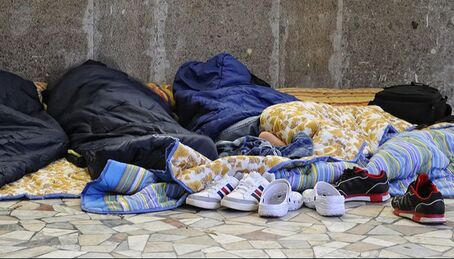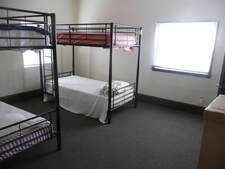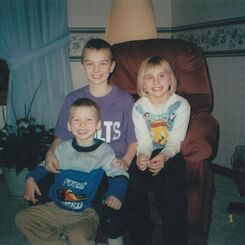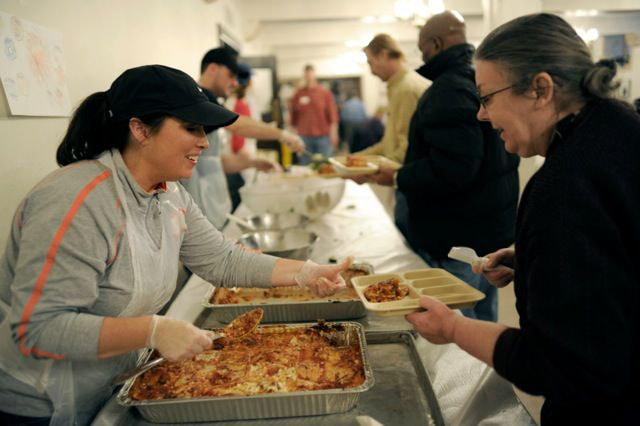Storytime: Growing Up HomelessThere’s an estimate of over 500,000 people struggling with homelessness in America and over 150,000,000 people worldwide. Some people may choose to be in that position but the majority are not homeless by choice. It’s our responsibility to help those around us, when we can, to prevent this number from increasing. I’ve been homeless and overcome it as well as helped others do the same. Here’s my story… Being embarrassed is a feeling we‘ve all felt before. I’ve had some embarrassing moments in my life, such as peeing my pants on the playground or profusely sweating during a presentation. However, nothing compares to the embarrassment of being so poor you can’t afford a place to live. Not only was my family worried about where we would rest our heads at night, but we stressed over the judgment we knew was directed towards us. People didn't point and crack jokes, like Nelson would on an episode of The Simpsons. Instead, their eyes and body language did the talking. If you ask a large variety of people what their thoughts are on giving homeless people money, you’ll get all sorts of answers. Some of which I’ve heard over the years are “Don’t do it. It will go to drugs” and “It won’t help them. It makes them think they can beg forever”. One person said to me that “All homeless people should be put on an island, away from normal people.”, not knowing my past. People often group “homeless people” together like they’re part of sports team and make choices together. Well, we weren't in a group. We were simply trying to survive.
Over the next decade, shelters became the norm for us. My brothers and sister were welcomed into the world, so the rooms we stayed in became slightly more cramped. Typically, a room in a shelter, for families, has one or two bunk beds and a closet. All of the families would share a living room, dining room, kitchen, and bathrooms. This meant that we had no privacy except for in our rooms. To us, these homes weren't too bad because the alternative was sleeping in an abandoned building or car which we had done before. We may have even thought it was a luxury type of living compared to that alternative. When we actually had places to live, they were often in rough neighborhoods and infested with cockroaches, head lice and unwanted roommates. These roommates always seemed to be “shady” characters, often addicts and criminals. The shelters were at least filled with kids our age. We always found a light in the darkness that surrounded us. For example, we had an immense amount of practice meeting people at a young age. My brother and I can still make friends with anyone to this day. It taught us to respect everyone no matter where they came from. I even had my first kiss at a shelter. I hung upside down on the jungle gym and my crush came and kissed me like I was Peter Parker from Spiderman.
The older we got, the more embarrassing our lifestyle became. Children didn't have filters and their words pierced our souls. Our lack of hygiene and clothing options made us a target for bullying. I remember having socks so big and shoes with holes so big that my socks would come out through the front. The front of my shoes looked like a mouth with a big sock-tongue hanging out. I'd have to pull the top of each sock which would in turn pull the sock into the shoe and back on my foot. I also remember having a Dale Earnhardt printed t-shirt that had a hole in the side, near my ribs. The hole eventually became so big that I would put my arm through it and into my pocket, to cover my skin from showing. One time we tried hiding the fact that we were homeless until someone realized that the school bus dropped us off at the shelter. We made friends everywhere we went but were often outcasts because we couldn't relate with more privileged kids. Luckily for us, we moved often which provided a way out if the bullying ever got too bad. Eventually, we learned to get off the bus before or after our stop and then walk to the shelter to keep it secret. Homeless shelters were for when we had nowhere to go. The rest of the time we stayed with friends, family or someone my mother was dating. Sometimes we slept on a couch or the floor and other times we all crammed together on a bed in a small bedroom or dungy basement. No where we lived was nice. My mother was always a clean person but there's only so much you can do to an old 1940s mobile home or “crack house”. During those times, churches and other charity organizations helped us immensely. We often went to soup kitchens, a place where churches offered free meals and food to those in need. Food stamps were a life saver. They made sure we never went hungry, even in our worst situations. One year for Christmas, a family sponsored us by providing toys and clothes for Christmas. We received more presents that that year for Christmas than we had the previous five years combined. My mother’s face couldn't hold back the excitement she had for us. It was a Christmas morning that she had always wanted to provide.
One thing I’ve learned from these experiences is that no person's story is the same. Each person that's struggling arrived there a different way and to stamp your opinion on them doesn't help. Instead of judging people, try helping them any way that you can. You might just end up saving someone's life. If they don’t change, keep trying. My mother received help from people for decades until she finally made the changes to stay off the streets. Don’t turn your back on the people you love. Try your best to not judge them and remember that we all have our own path in life. If you are or become homeless, I recommend seeking out every resource in your area. Like I mentioned before, churches often offer food. Homeless shelters offer shelter. If you get some type of government aid, there are long term living arrangements that can be made such as living in a housing commission. There are reduced prices for transportation for those in need. Possibly the most important thing to do in times like this are growing mentally. You can do this by joining a church, spending time in a public library and finding help with a government provided therapist. In order to make a real change, you need to do things you normally don't do. I once heard someone say that the only way to learn is by talking to people and reading. This might not be entirely accurate but they are two great ways to improve yourself. Also, finding a way to battle bad habits and increase good decision making will completely change your life. It's not easy but with time and effort, lasting change can be made. Don't be afraid to ask for help. There is a light at the end of the tunnel if you choose to get there. Thanks for reading!
Comments are closed.
|
Greg SmolkaGreg is a Grand Rapids, Michigan native with a passion for personal growth. Archives
August 2023
Categories
All
|
|
More Pages
|
Greg Smolka
Greg is a Grand Rapids, Michigan native with a passion for personal growth, investing, and business.
|
Recent BLOG Posts
|




